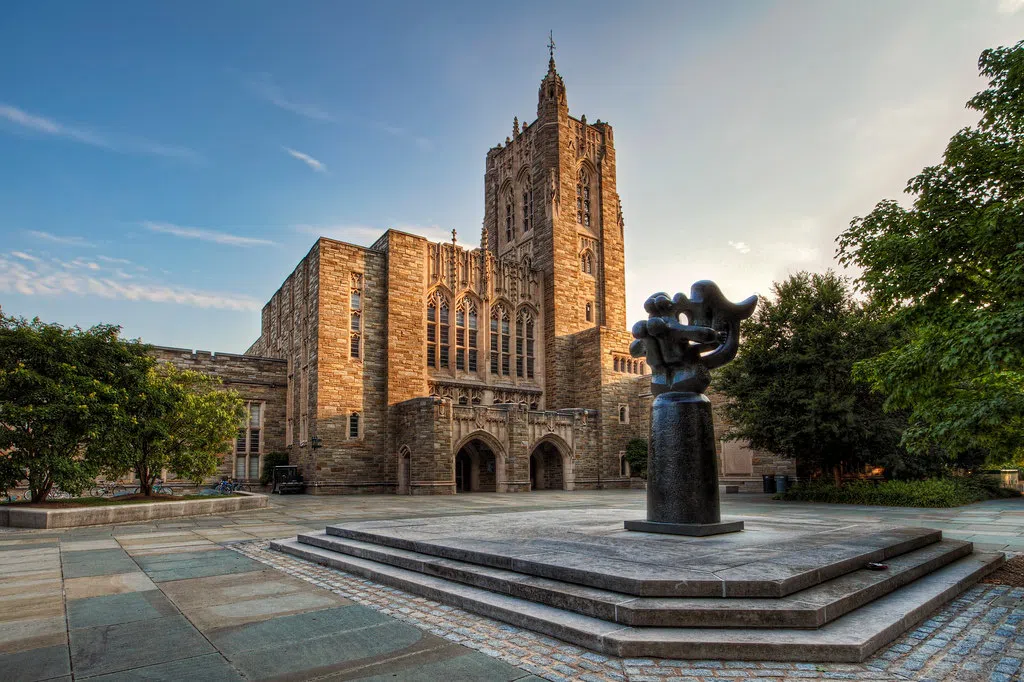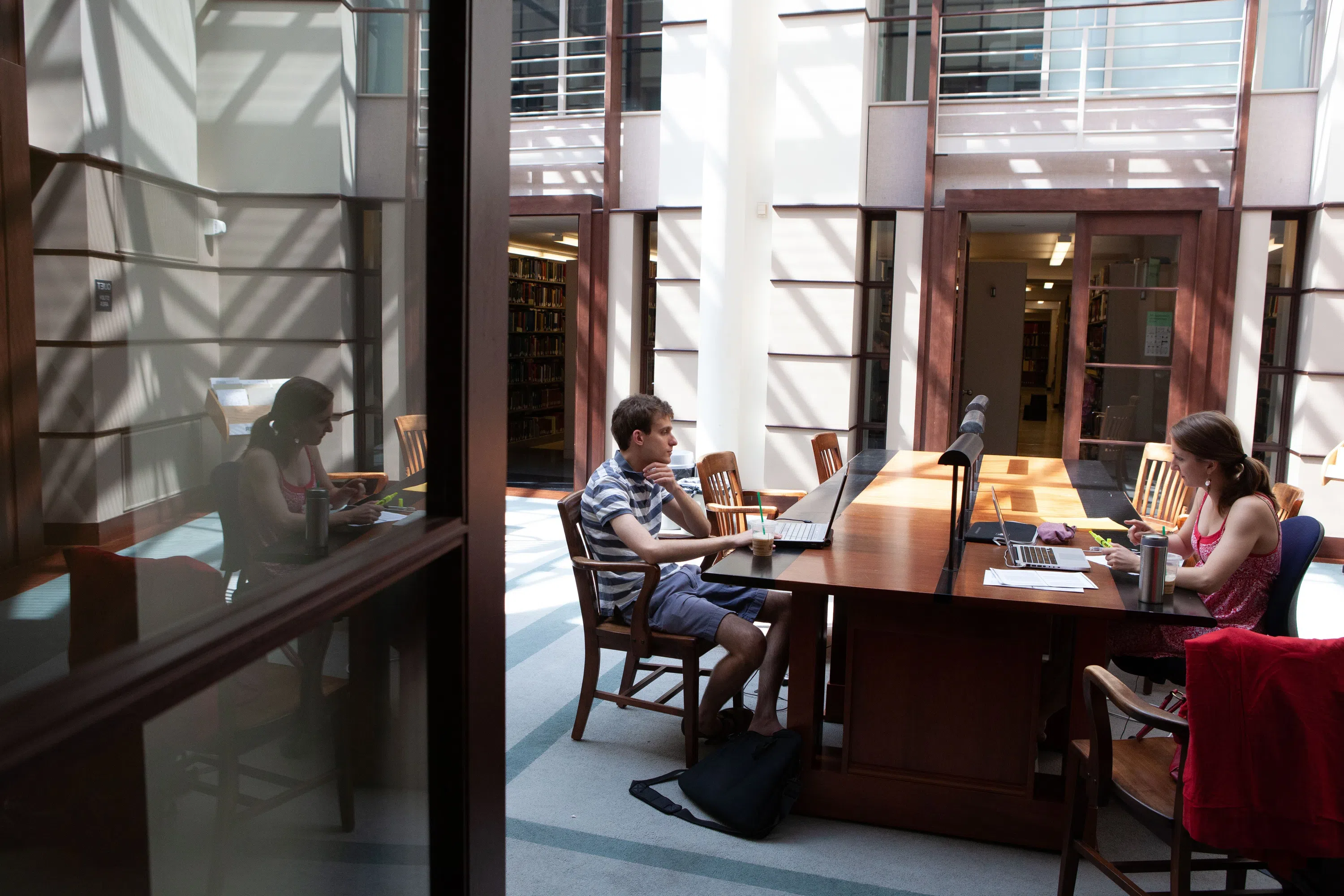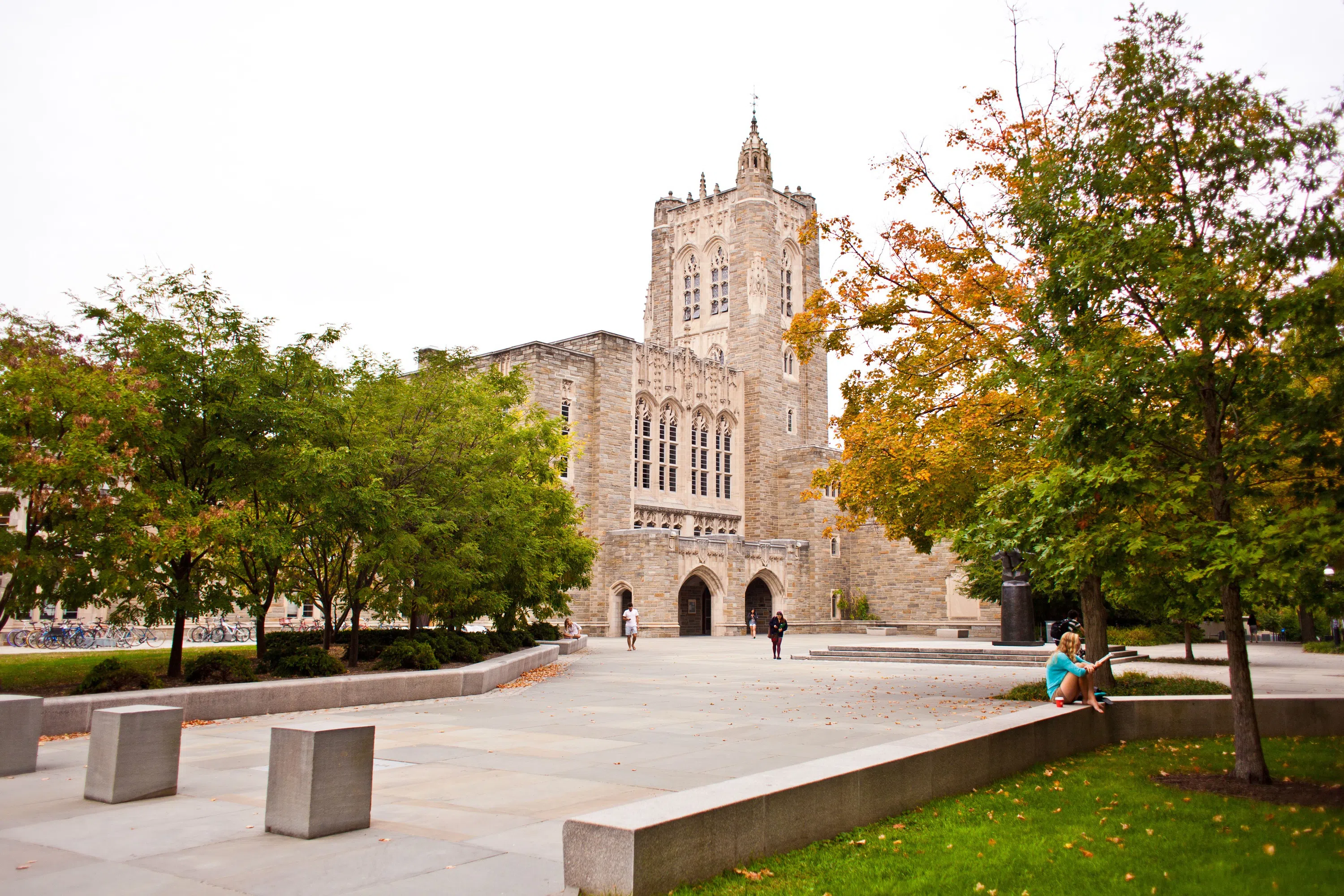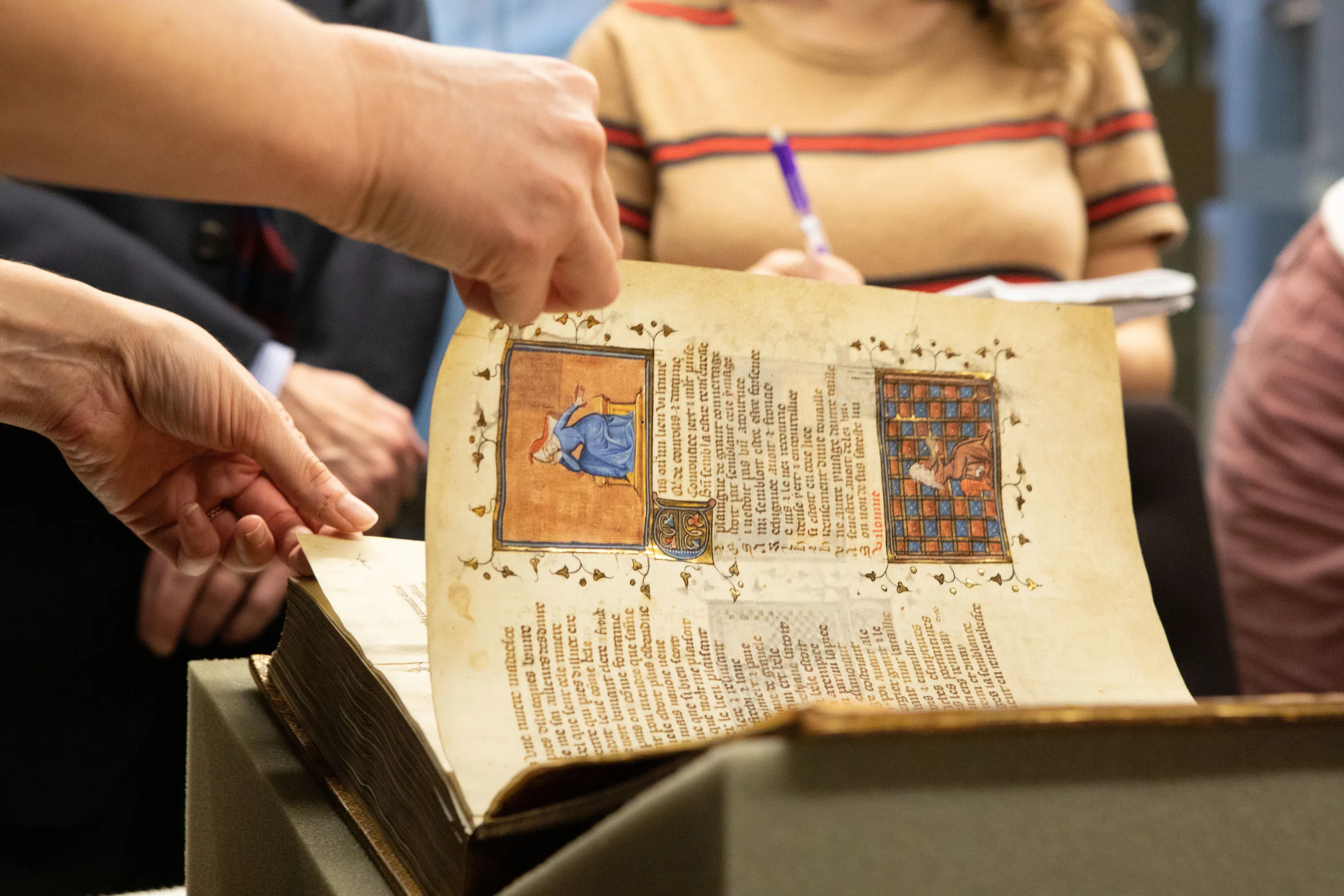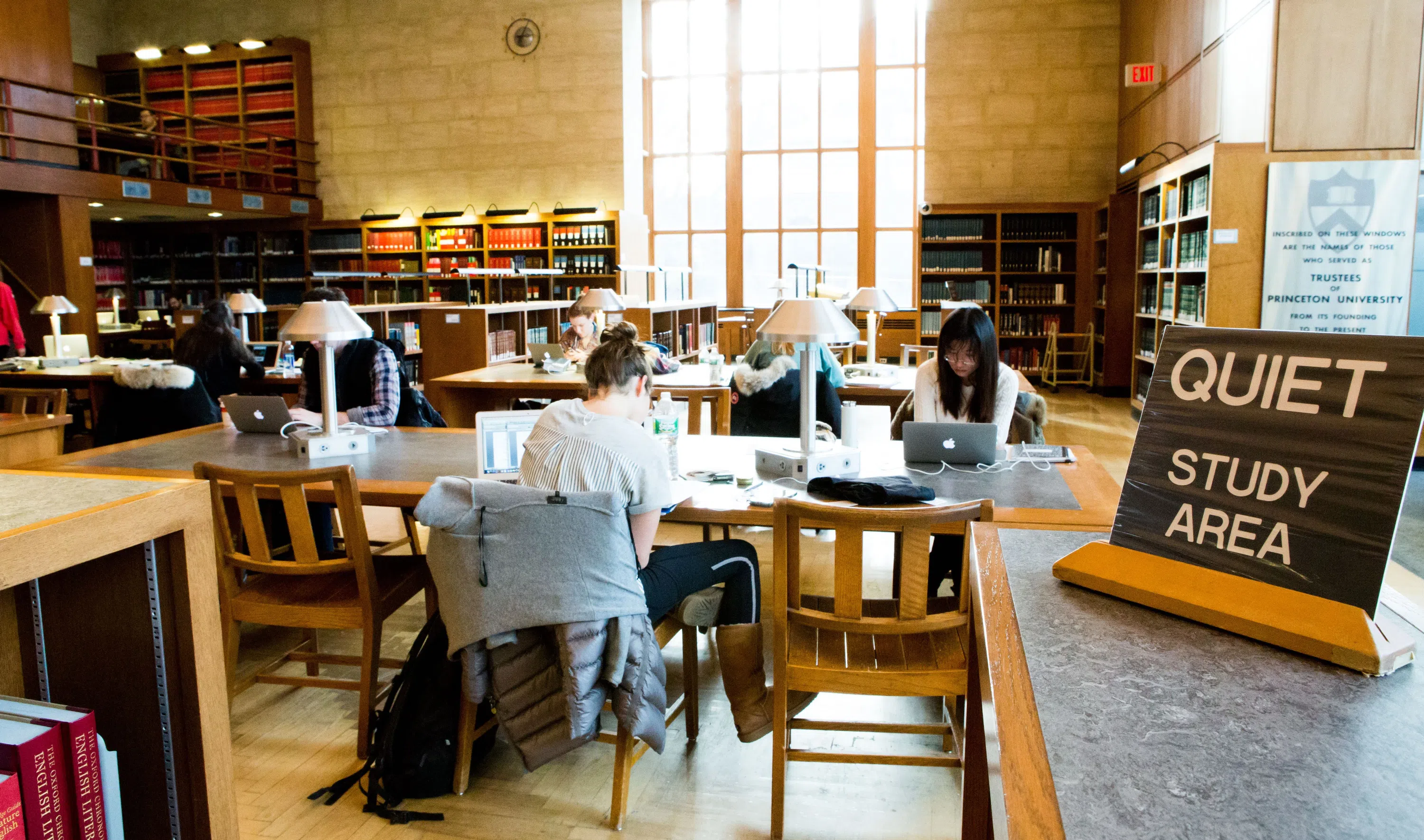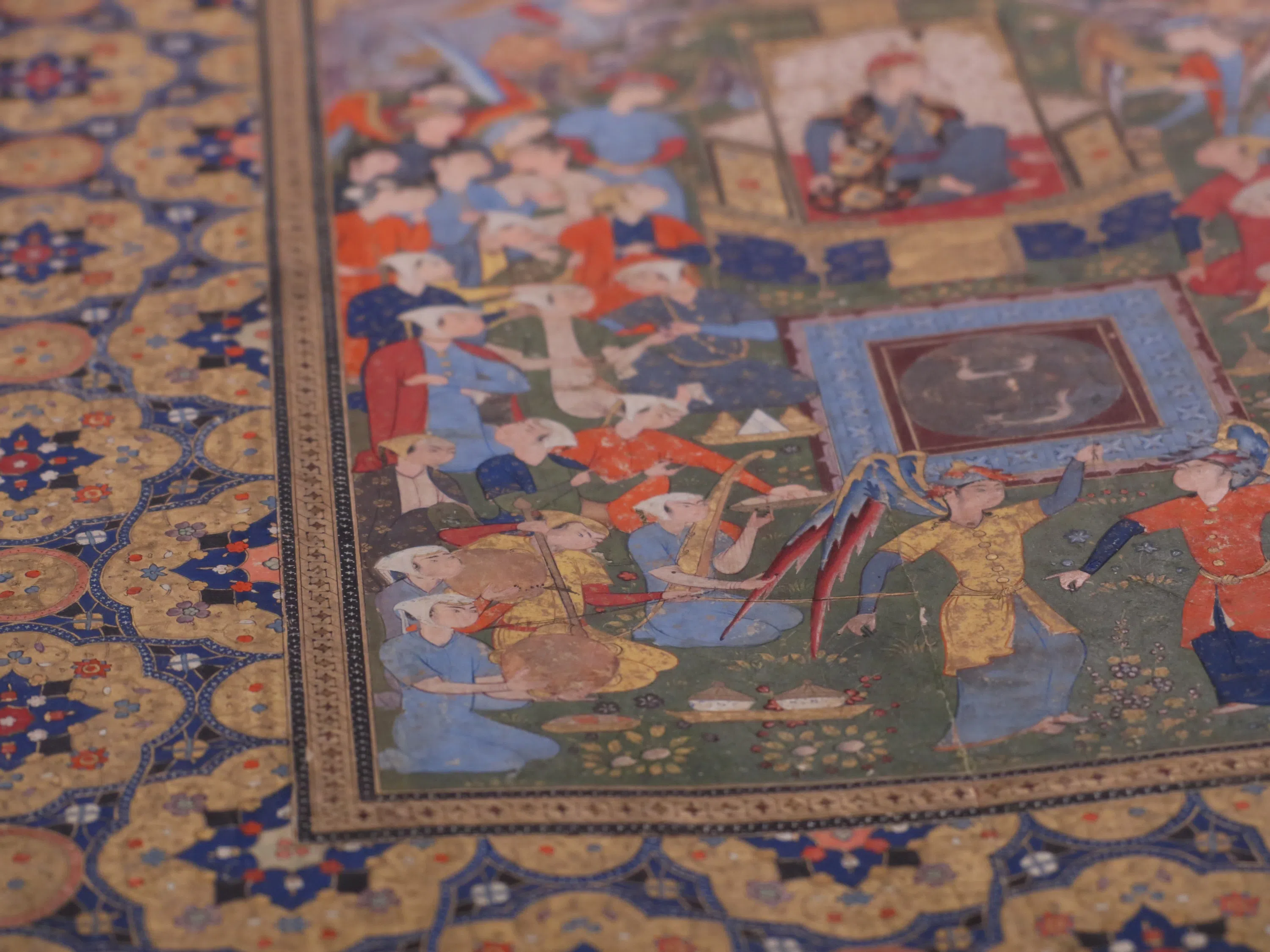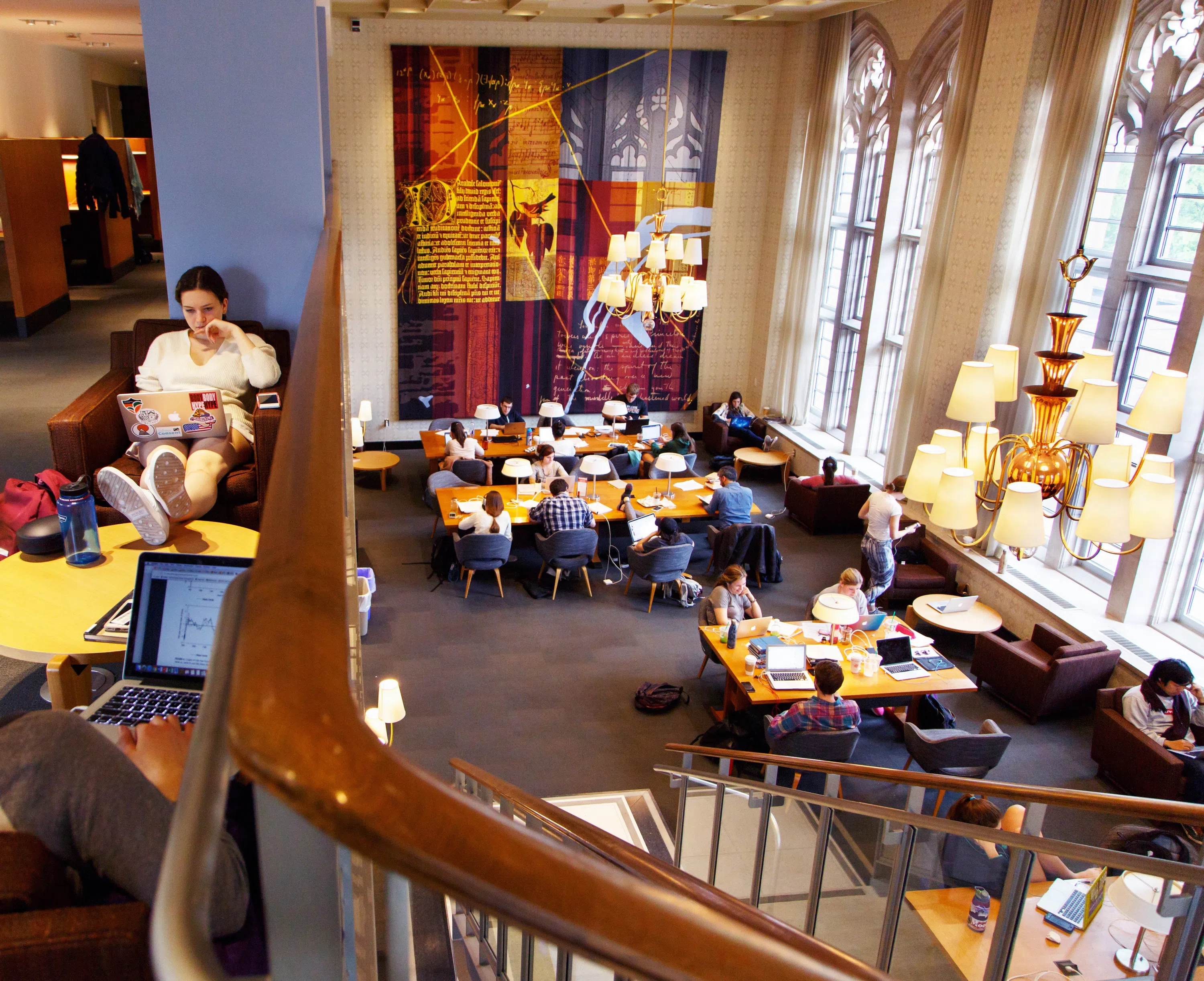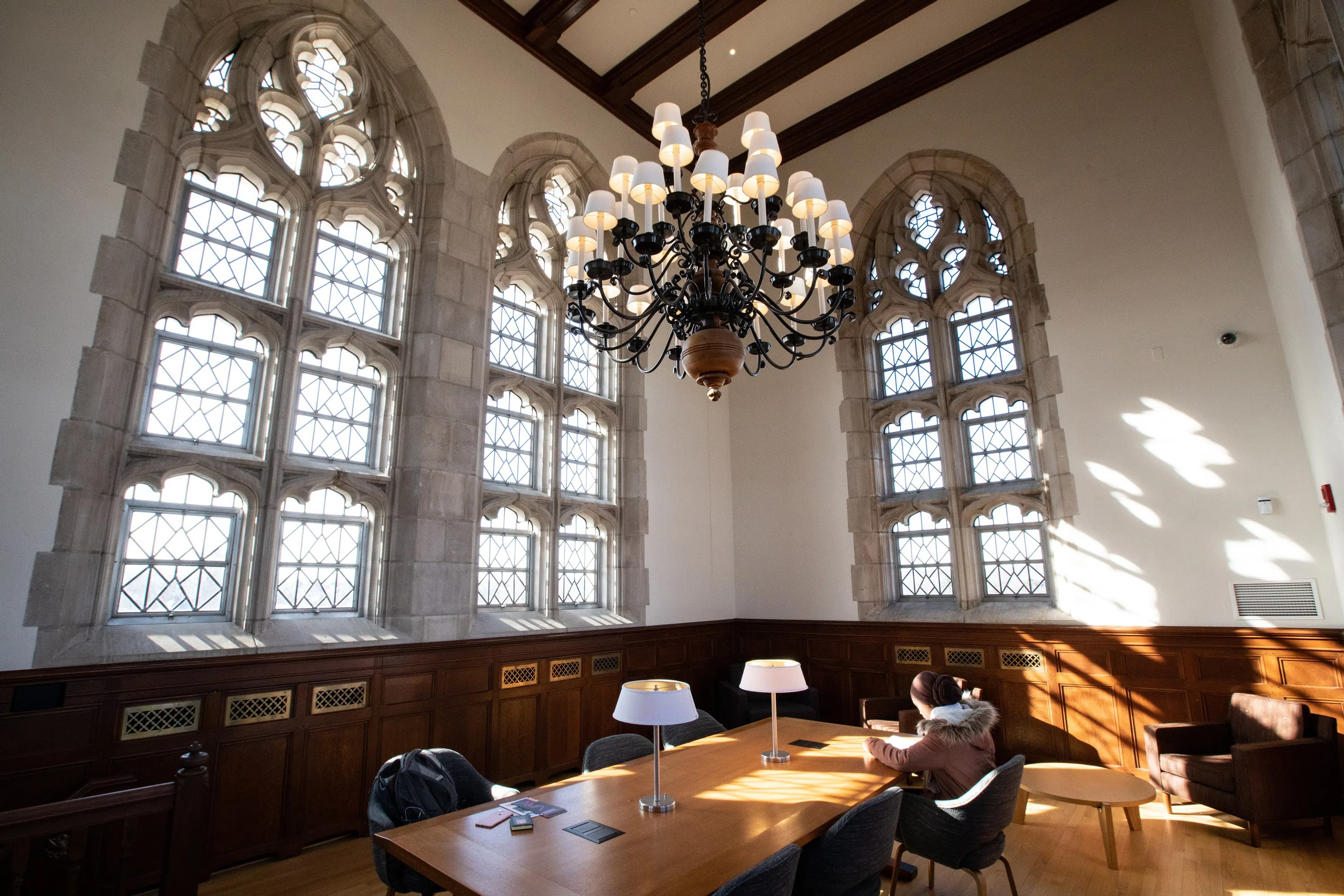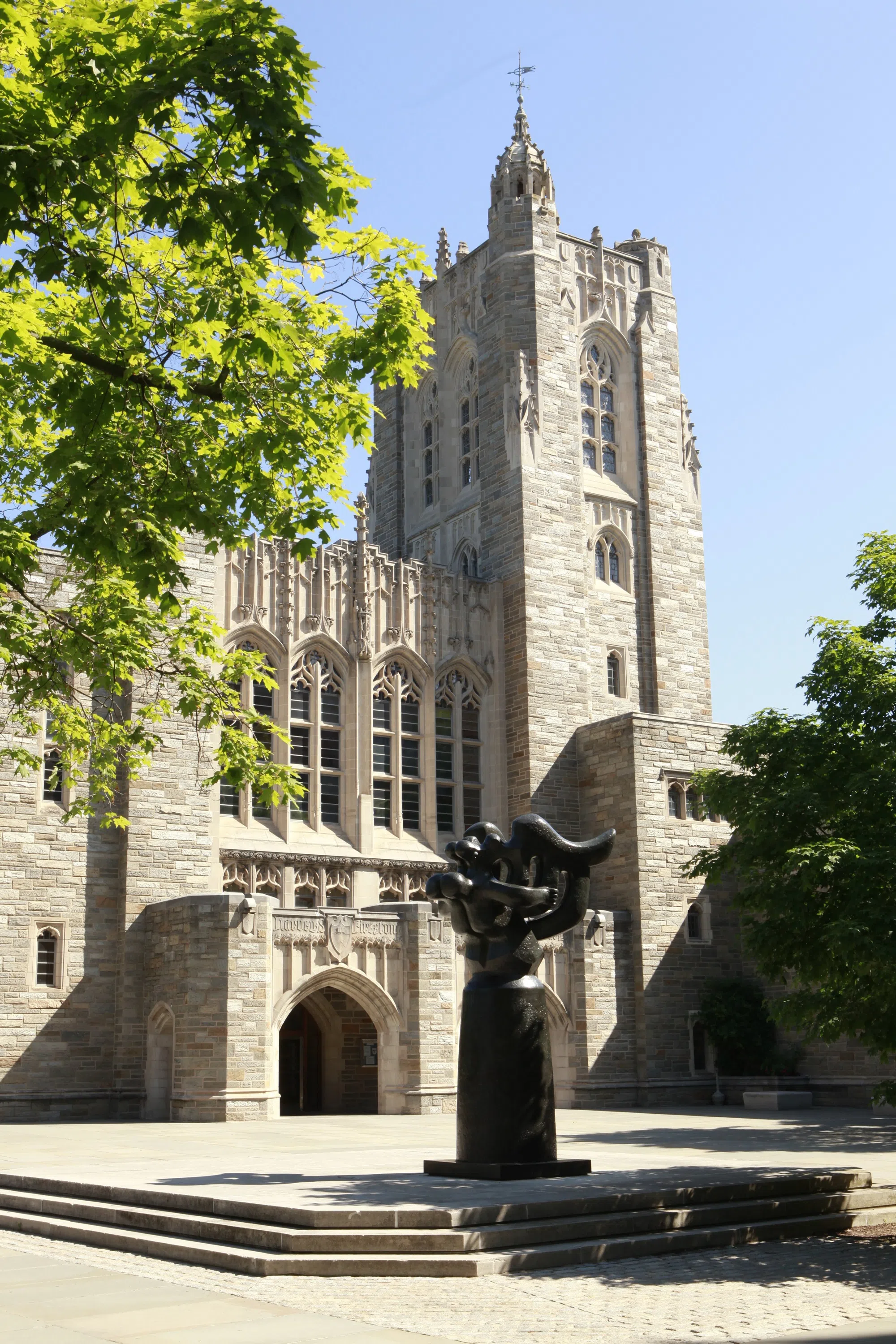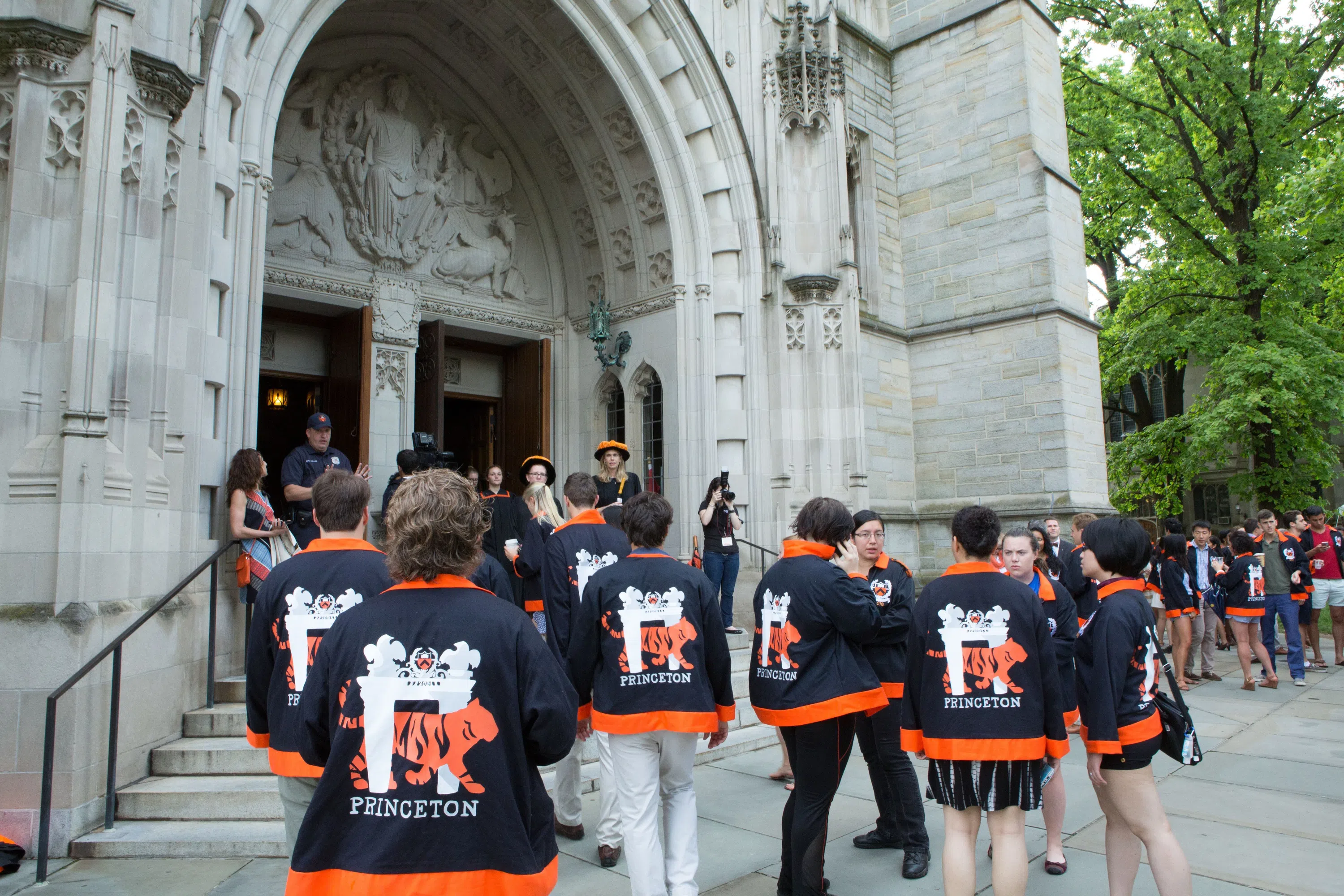Media Gallery
Libraries
⭐ Libraries
The Princeton University Library, one of the world’s most distinguished research libraries, consists of the Harvey S. Firestone Memorial Library and 9 specialized libraries.
Firestone Library
The Harvey S. Firestone Memorial Library is the largest campus library and the administrative center of the library system. With over 70-miles of shelving, if you were to have someone walk along the shelves of Firestone Library and someone else walk to New York City, the NYC-bound person would arrive first!
Firestone is one of the largest open-stack libraries in the world (and was the largest when it opened in 1948). The open-stack designation means that — except for some rare or fragile material — books and journals are shelved in open stacks, where users can browse at their leisure.
Firestone is one of the largest open-stack libraries in the world (and was the largest when it opened in 1948). The open-stack designation means that — except for some rare or fragile material — books and journals are shelved in open stacks, where users can browse at their leisure.
The Princeton Library System
The Princeton University Library has millions of books, journals, manuscripts, and non-print items in more than 200 languages. Expert reference and subject specialists help students locate materials that will best match their academic interests as well as identify primary sources at Princeton and elsewhere that will support their independent work.
The library also provides access for Princeton students, faculty, and staff to licensed, restricted, high-quality e-resources; these, along with complete library catalogs, are available for use online at the library’s homepage.
Student Friends of the Library, a student organization affiliated with the 75-year-old organization Friends of the Library, is dedicated to the exploration of Princeton’s libraries and was founded in 2005 under the Latin motto, Sapientia a libris legendis; admiratio a libris lustrandis (Knowledge comes through reading books; Curiosity comes through exploring them).
The library also provides access for Princeton students, faculty, and staff to licensed, restricted, high-quality e-resources; these, along with complete library catalogs, are available for use online at the library’s homepage.
Student Friends of the Library, a student organization affiliated with the 75-year-old organization Friends of the Library, is dedicated to the exploration of Princeton’s libraries and was founded in 2005 under the Latin motto, Sapientia a libris legendis; admiratio a libris lustrandis (Knowledge comes through reading books; Curiosity comes through exploring them).
Rare Books in Firestone
Within Firestone Library is the Department of Rare Books and Special Collections, whose wing on the main floor houses the most valuable volumes in the building. Collections range from Babylonian cylinder seals and Egyptian papyrus documents down through medieval and Renaissance illuminated manuscripts, from the earliest printed books to the correspondence and literary manuscripts and documents of a wide array of 19th- and 20th-century English, American, and Latin American authors (including Booth Tarkington ’1893 and F. Scott Fitzgerald ’1917).
The Scheide Library holds priceless materials like music manuscripts of Johann Sebastian Bach and Ludwig van Beethoven, as well as all four of the first printed Bibles — the 1455 Gutenberg Bible, the Mentelin Bible, the 36-Line Bible and the 1462 Bible. The only such collection in the U.S. and one of only six in the world (the other owners are European public libraries), it was left to the University by William H. Scheide in 2015. Princeton’s notable collection of public policy papers, which are available to the public through the Mudd Manuscript libraries, includes all of the declassified documents and personal papers of John Foster Dulles pertaining to his term as Eisenhower’s secretary of state as well as papers from George Kennan, including his famous Cold War “long telegram.”
The Scheide Library holds priceless materials like music manuscripts of Johann Sebastian Bach and Ludwig van Beethoven, as well as all four of the first printed Bibles — the 1455 Gutenberg Bible, the Mentelin Bible, the 36-Line Bible and the 1462 Bible. The only such collection in the U.S. and one of only six in the world (the other owners are European public libraries), it was left to the University by William H. Scheide in 2015. Princeton’s notable collection of public policy papers, which are available to the public through the Mudd Manuscript libraries, includes all of the declassified documents and personal papers of John Foster Dulles pertaining to his term as Eisenhower’s secretary of state as well as papers from George Kennan, including his famous Cold War “long telegram.”
